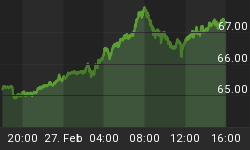If you thought slavery had ended, think again.
Estimates are that over 40 million people today are trapped in slavery. And it’s not an existential or theoretical classification: This is traditional slavery, with a slight modern-day twist.
And business is booming.
More than 165 suspected victims of modern slavery from Bulgaria have been discovered working for French winemakers following a crackdown on an organized crime network, last week.
So far, French officials have arrested four suspects, three from Bulgaria and one from France, after identifying the suspected slaves of four winegrowing companies near the eastern city of Lyon, according to Europol, Europe’s policing agency.
“The Bulgarian members of the group were responsible for recruitment in Bulgaria while the French member arranged logistics, including organizing accommodation for the workers,” said a spokesman for Europol, which supported the investigation.
The workers were recruited by a legitimate employment agency in Bulgaria, told they would receive 60 euros ($66) per day, and have their transport and housing expenses covered, Europol said.
Yet, they were made to live on a campsite, had money deducted from their wages for meals, and were denied the full amount they had promised when their contracts ended. As a result, many of them were unable to return to Bulgaria.
And the Bulgaria incident is but one of countless such operations, worldwide, in a business that earns traffickers upwards of $150 billion a year, according to international agencies.
More specifically, the annual breakdown in illegal profits looks something like this, according to Lucy International and the International Labor Organization (ILO):
- $99 billion from commercial sexual exploitation
- $34 billion in trafficked, forced workers for the construction, manufacturing, mining and utilities sectors
- $9 billion in agriculture, including forestry and fishing
- $8 billion dollars saved annually by private households that employ domestic workers under conditions of forced labor
In fact, on any given day, says the ILO, some 40 million people are victims of modern-day slavery, and women account for over 70 percent of those victims:

(Click to enlarge)
In a 2017 report, the ILO noted that modern-day slavery is most prevalent in Africa, where 7.6 out of every 1,000 people are forced into slavery. This is followed by Asia, the Pacific, Europe and Central Asia, though data is insufficient in the Arab states and the Americas.
But when it comes specifically for forced labor, Asia and the Pacific outdo Africa, following by Europe. Related: Anti-Aging Market To Hit $55 Billion
In Europe, 3.6 out of every 1,000 people are forced into slave labor.
Eastern Europe is major source of migrants who travel for work to other European countries—and also a major focal point of modern-day slavery.
And within Europe, Bulgaria is a primary source country for human traffickers.
The Protocol to Prevent, Suppress and Punish Trafficking in Persons (which Bulgaria has adopted) defines trafficking in persons to include the recruitment, transportation and transfer by means of the threat or use of force or other forms of coercion for the purpose of exploitation.
Trafficking in human beings for the purpose of sexual exploitation remains the prevailing form of exploitation in Bulgaria; however, the number of trafficking victims for labor exploitation and forced begging continues to grow as well.
Earlier this month, a similar situation surfaced in Brazil, where the Brazilian Carrefour supermarket chain severed ties with Brazilian companies involved in slave labor. They’d come under fire, according to Reuters, for buying meat sourced from farmers who had been blacklisted for their use of forced labor.
In addition to the victims themselves, the countries in which they are forced into slave labor incur financial losses.
The victims usually lose much of their earnings due to wage retention, debt repayments and underpayment of wages. They work under strenuous conditions but receive little or no pay. The countries where they work lose revenues from non-payment of taxes due to undeclared incomes or the illegal nature of the jobs concerned.
By Mirela Ajanovic for SafeHaven.com
More Top Reads From Safehaven.com:
















